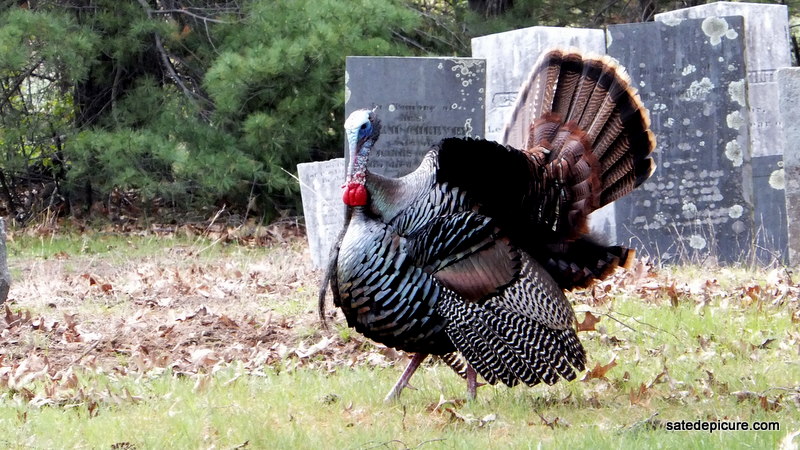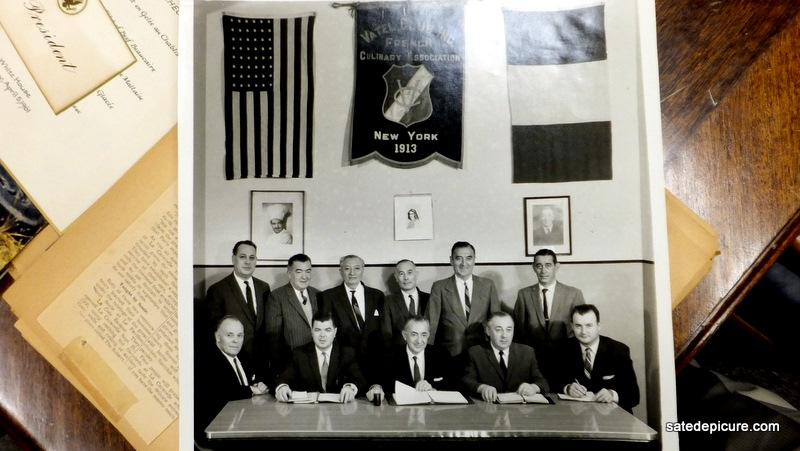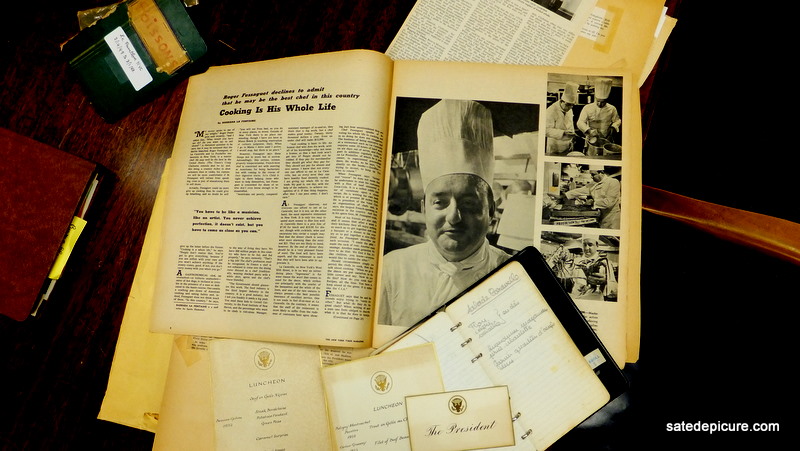Tonight I quietly dedicated service in the Bistro to Roger Fessaguet one of the most important chefs in the history of New York City and one who deserves to occupy our memories and hearts. April 2nd was the third anniversary of his passing and I think of him every year on this day. For 20 years Roger was chef at New York’s four-star La Caravelle restaurant on West 55th street (near 5th avenue) starting when it opened in 1960 until his retirement from the kitchen in 1980. Back in February of 2012 I spent three days with Roger at his home in West Palm Beach Florida recording his stories and blanketing him with the respect and compassion he deserved at such a late stage in his life.
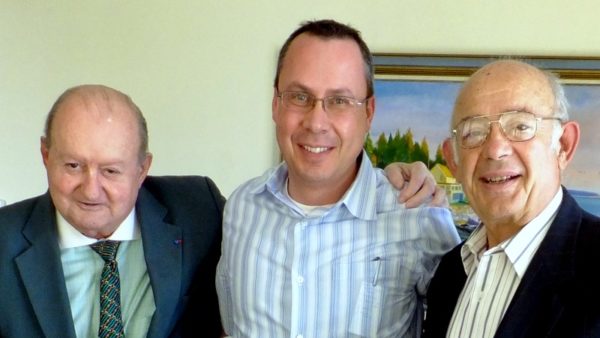
Roger Fessaguet, Jim Griffin, Jean Jacques Dietrich
We were brought together by my mentor and good friend Chef Jean Jacques Dietrich – a lifelong friend of Fessaguet. Dietrich lived with me when he first started teaching after retiring from the New York Athletic Club and we have remained close ever since. It was Dietrich’s idea to visit with Roger and record a bit of his history – an act of deep respect and love from one great chef to another.
Prior to visiting Roger time was spent reflecting on what life might be like at the end of a long career in foodservice. What happens when the world no longer pays attention after decades of adoration? What is life like when the spotlight dims then darkens – is there sadness or joy, bitterness or grace? What do the best chefs in the world value most after a career has ended and the sun begins to set on a life well lived.
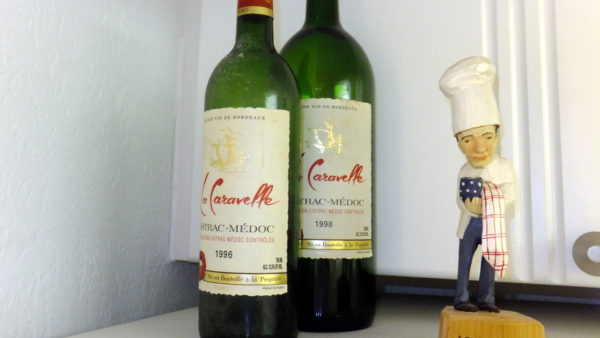
Roger never expressed regret for being a chef and remained fulfilled by a magnificent career even later in life. He spoke at length about his great chef friends including Pierre Franey, Jacques Pepin, Jean Jacques, and Andre Soltner. He loved reflecting back on life at La Caravelle, sharing wonderful memories of his staff and customers like Ambassador Joseph Kennedy, Salvador Dali, and others. An intellectual, he kept meticulous records and documentation including thousands of pages or recipes, reservation books, floor plans, sales records, menus, and memorabilia. Reviewing and sharing these materials brought him great joy. And he loved talking about his late wife Anne Marie who shared his journey until she passed away in 1985. Fessaguet had no regrets, he loved being a chef, loved the Franco culinary community and culture of New York in the 1960’s, remained a captivated culinary intellectual until the day he died and never stopped loving his beautiful wife Anne Marie.
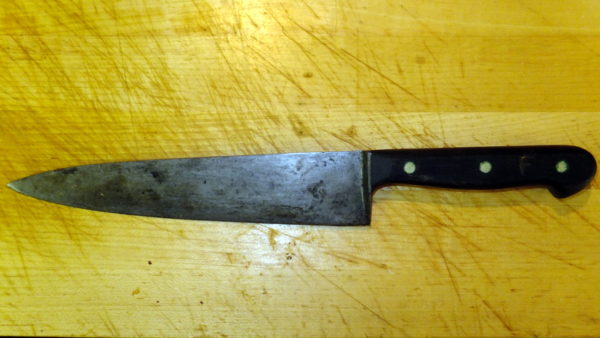
One of Fessaguet’s Chef’s Knifes – West Palm Beach Florida 2012
Of the many anecdotes and stories shared by Fessaguet my favorite is his description of finishing a summer night of service at La Caravelle and jumping into his Porsche with Anne Marie for a high-speed 390 mile ride to his beloved cottage in Chamberlain, Maine. He and Anne Marie would roll the windows down in the car and floor it while driving north, scanning for police all the way to the cottage. Arriving around 5:00 in the morning, I can only imagine the two of them collapsing into bed with the sun just rising over Muscongus Bay and Haddock Island. When Roger told this story his posture softened, his eyes sparkled, and his heart grew warm. He loved his cottage in Maine.
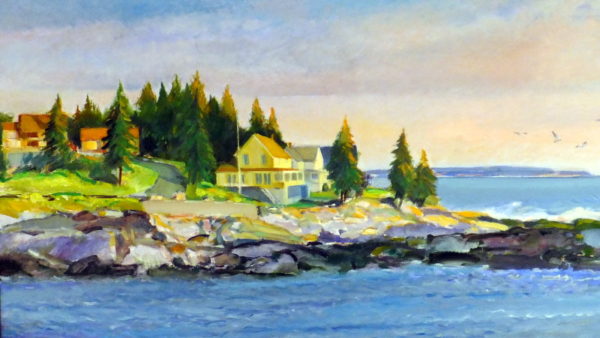
Fessaguet’s beloved “Finistere” Cottage, Long Cove Point, Maine
(this painting hung over Fessaguets sofa in West Palm Beach Florida)
He also made me laugh when I asked him about the restaurant name “La Caravelle “ and he joked about how so many people got the story wrong. Most, including the New York Times, incorrectly claim the restaurant was named after the small sailing ships used by Christopher Columbus – Fessaguet found this funny. The restaurant was actually named after the Caravelle jetliner built by French firm Sud Aviation in the 1950’s. It was on one of these aircraft that Chef Fessaguet flew for the first time – that the aircraft was French built made it all the sweeter. Such a fitting name for a restaurant that took flight the minute it opened in 1960.
Chef Roger Discusses the Culinary Brigade at Le Pavillon Restaurant
Roger was a great man and I remain thankful for having known him and for the tremendous impact he made on our profession. Few chefs have been as influential or demonstrated as much professionalism. Today we all stand on Roger’s shoulders, he is a true pillar of American gastronomy and he lives on in the many generations of chefs that are prospering today because of the path paved. Great chefs never fade away – they live on in the many generations of chefs whose lives they impacted and whose professions they improved. At 82 years of age, the last trip he took prior to passing was back to Maine for one more visit to his beloved cottage. One last visit to the cottage filled with Anne Marie’s spirit and such joyous memories – the cottage purchased through the blood, sweat, and tears of hard work at La Caravelle. Roger never returned to Florida – he passed away shortly after visiting his cottage in a nursing home in Damariscotta. Rest easy friend.
